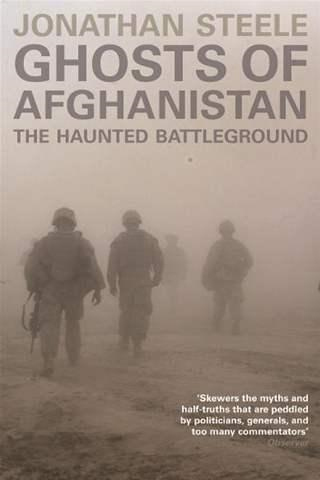Formerly the Guardian’s Moscow bureau chief – and with over thirty years of reporting on Afghanistan with distinction — Jonathan Steele makes a comparative analysis of the US and Soviet occupations the backbone of his latest book. Alternating reportage with a careful dismantling of ‘Thirteen Myths About Afghanistan’ he finds many similarities and at least one crucial difference.
Both were essentially interventions in a civil war, pitching a high-tech military against a poorly-armed insurgency with disastrous consequences for millions of ordinary Afghans.
However, while in the Soviet context ‘[a] new leader came to power in the Kremlin, abandoned hopes of victory and tried hard to achieve a negotiated settlement’, efforts cynically blocked by the West, in the US, Obama has escalated the war and refused to countenance serious peace talks.Steele is clear that, ‘while preferable to staying in the country in a futile search for military victory’, ‘the option of withdrawing from Afghanistan without a negotiated settlement, as the Soviets did, is not the best one’.
However — and this is one of the book’s major strengths — he is also clear that negotiations to end Afghanistan’s long-running civil war, coupled with local ceasefires on the ground and the adoption of a regional agreement on non-interference in Afghan affairs, remain a realistic prospect — provided that the US is prepared to jettison its plans for a long-term military presence and withdraw.
For many years I have been directing activists interested in learning more about Afghanistan to Sonali Kolhatkar’s and James Ingalls’ excellent — but now dated — Bleeding Afghanistan (Seven Stories Press, 2006). From now on I shall be recommending this book.


